Growing up in Haïti, the bulk of my knowledge of literature centered on French writers like Descartes, Rousseau, Pascal, Molière, and Voltaire, among others. I did not read Shakespeare until I was in my mid-twenties, and I only recently became aware of George Bernard Shaw’s famous, or rather infamous, statement, “Those who can, do; those who can’t, teach.” While I have yet to read the full play, I believe that the statement contains a false dichotomy and misses the point about what teaching is, and what teaching should be. However, I found myself using this phrase when addressing our incoming students this past summer. I was making a case that the Wesley Seminary faculty are actually “doers.” Our faculty are practitioners who are teaching out of the abundance of the ministerial experience they have gathered over the years.
As I bragged on the faculty this past summer, I could not help but think about two experiences that shaped me as student. The first occurred when I was an undergraduate student at Caribbean Wesleyan College in Jamaica. One of my professors pastored a church with a ministry in the inner city of Savanna-la-Mar. She invited me to teach outdoor Sunday school to at-risk children whom their parents could not send to church. I fell in love with these children, and we shed many tears when it was time for me to leave upon graduation. My four years doing life with them gave meaning to my time of study far beyond what reading or talking about social justice could do. The second experience took place during my time at Asbury Seminary when I enrolled in the course Wealth and Poverty in the New Testament. The course required us to read Robert Wuthnow’s Poor Richard’s Principle, and to engage in a service-learning opportunity during the semester. The weeks I volunteered at the food pantry in Wilmore, KY were very formative and helped put in context the concepts we discussed during class.
Teaching on social justice and civic engagement calls for pedagogy that creates a lasting impression on the heart and mind of students. We need to influence students’ lives by doing what we teach. By this, I mean two things: first, lead by example; second, create experiential learning opportunities so students can be immersed in a context or contexts that allow them to put what they are learning into practice. Engagement implies active interaction. As a New Testament professor, I have the opportunity to lead travel courses to Greece, Turkey, and Israel. I create learning experiences that allow students to not only visit historical sites and admire the beauty of the locations, but also interact with the people in these places. The recent refugee crisis in Europe has provided opportunities for students to worship with and minister to displaced persons and survivors of sex trafficking. In Palestine, students have the opportunity to interact with Palestinian Christians and gain an understanding of the complexity of their situation. Such encounters cause students to reevaluate their theology, eschatology, and overall outlook on life. They experience brokenness and grief firsthand, and this experience moves them to action. For example, several students who travelled with me later returned to Greece for short-term service at a refugee camp, and at least one is serving long term.
Meaningful engagement requires sustained interaction. I create a Facebook group for each trip. This allows us to stay connected and to reflect on the experience as the years go by, even beyond graduation. At least once a year, students are able to relive memories of the trip, share the impact it has had on their lives, and talk about where they are now.
Teaching is doing. While I disagree with Shaw’s statement, I believe it conveys a warning which all teachers should heed. It is a warning against settling for merely discussing the concepts and ideas surrounding issues of social justice. It is a warning against merely giving assent to the need for engagement without living as one who belongs to the struggle. Teaching for social justice and civic engagement should embody “doing.” As an administrator, I encourage faculty to live out this truth. It is all the more important because we expect our students to be engaged in ministry while pursuing their studies at Wesley Seminary. In the Gospel of Mark, the author uses the verb poieō, “to do,” to describe the miracles Jesus performs. When crowd saw the things he did, they expressed in amazement, “What is this? A new teaching, with authority!” (Mark 1:27, NRSV).
I do what I teach, I teach because I can! One of the best gifts I have received is a sign on my desk that reads, “I teach. What’s your superpower?”





